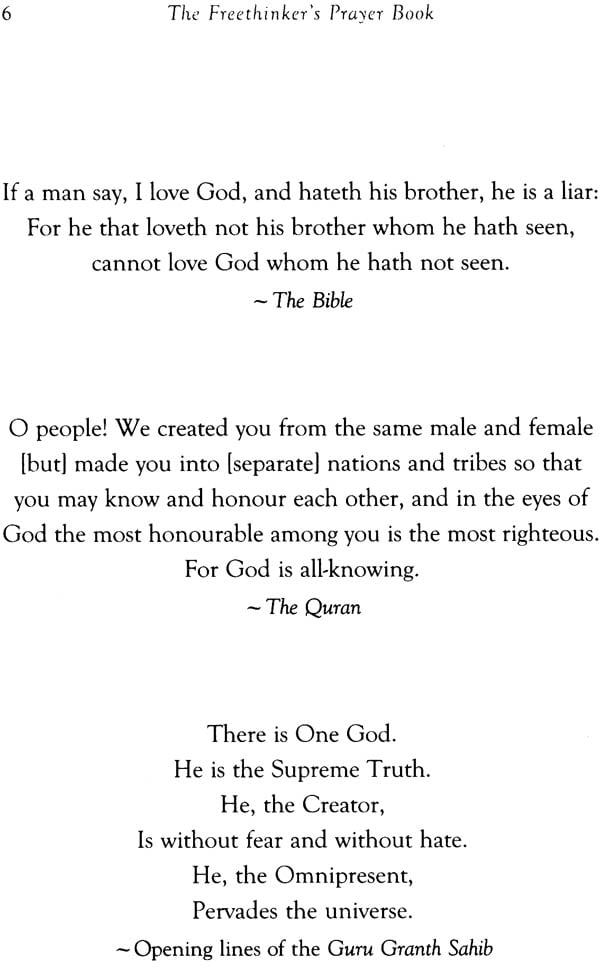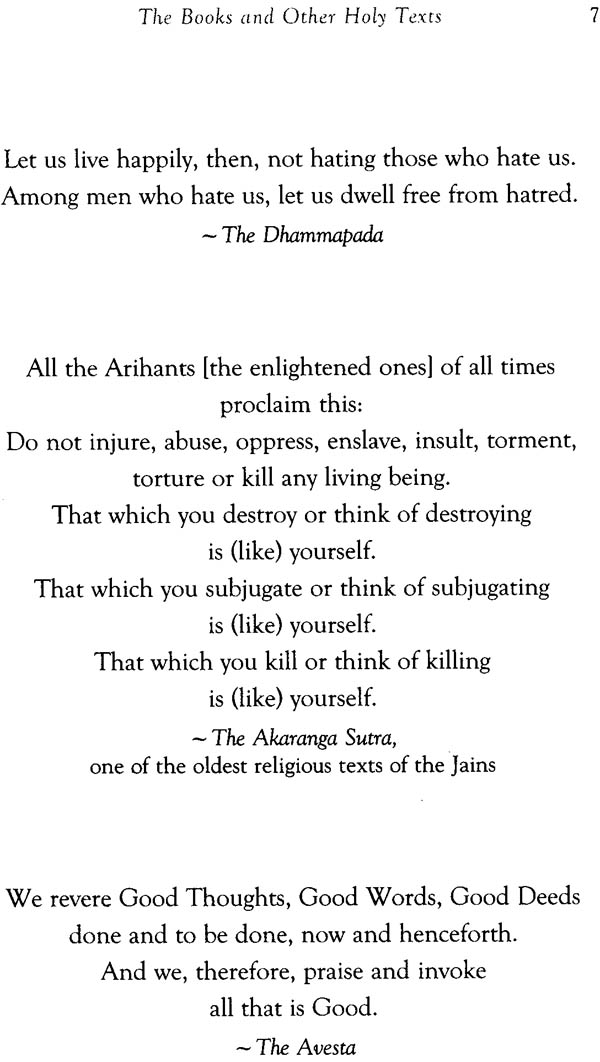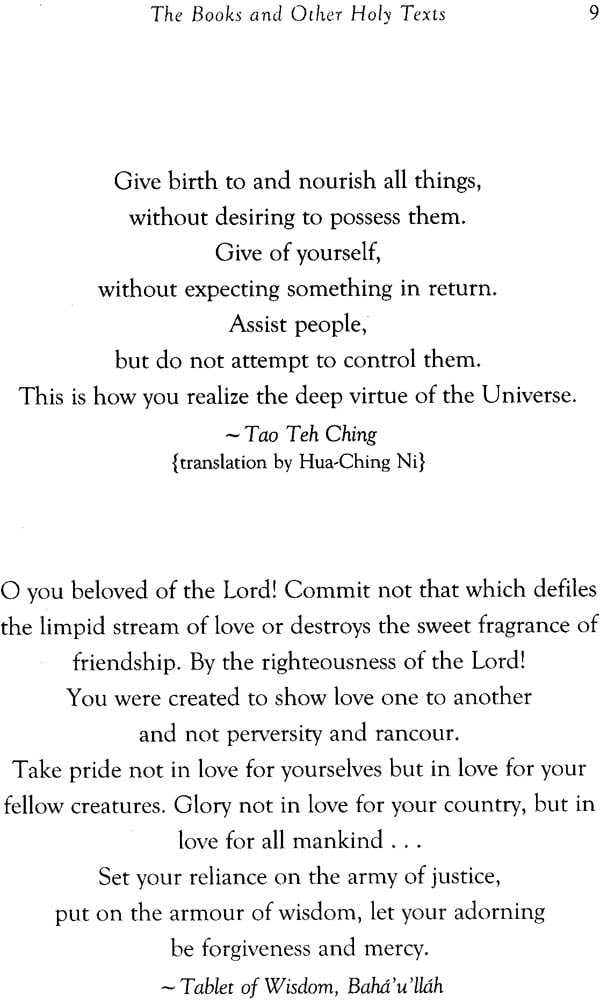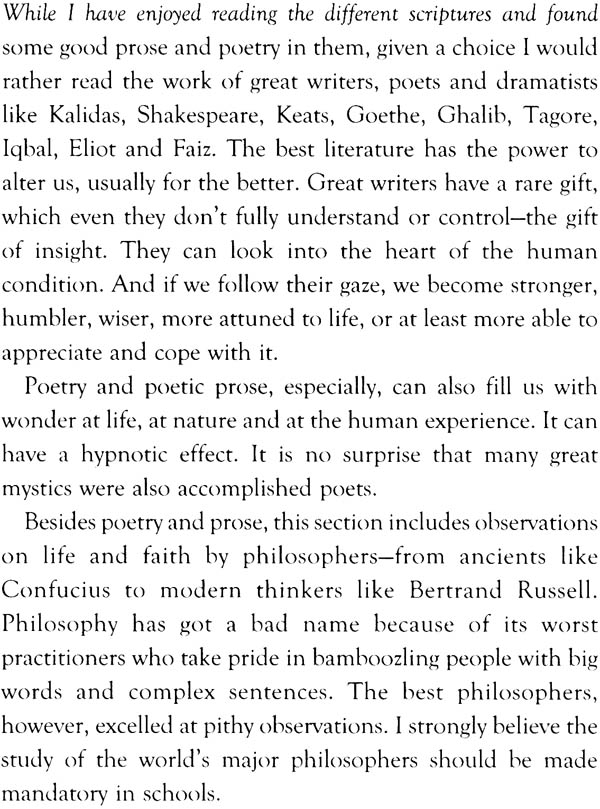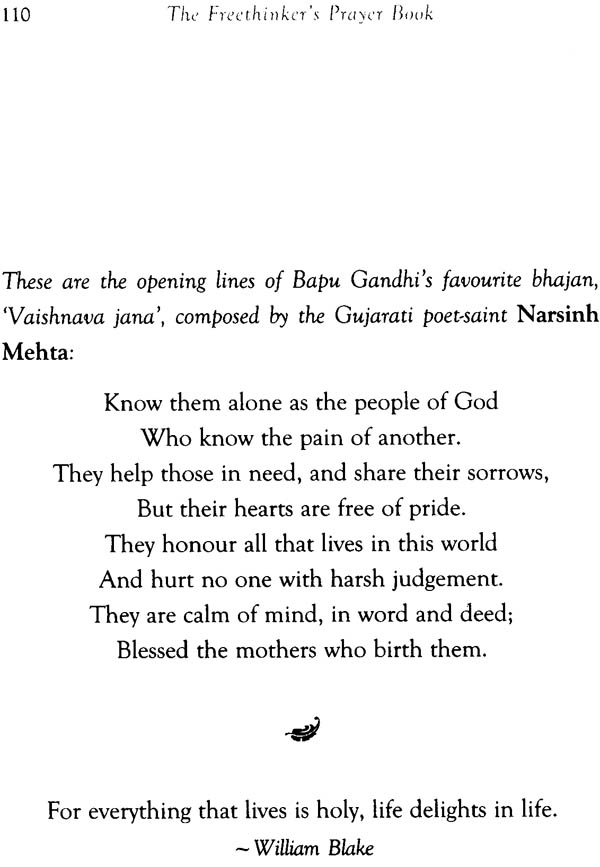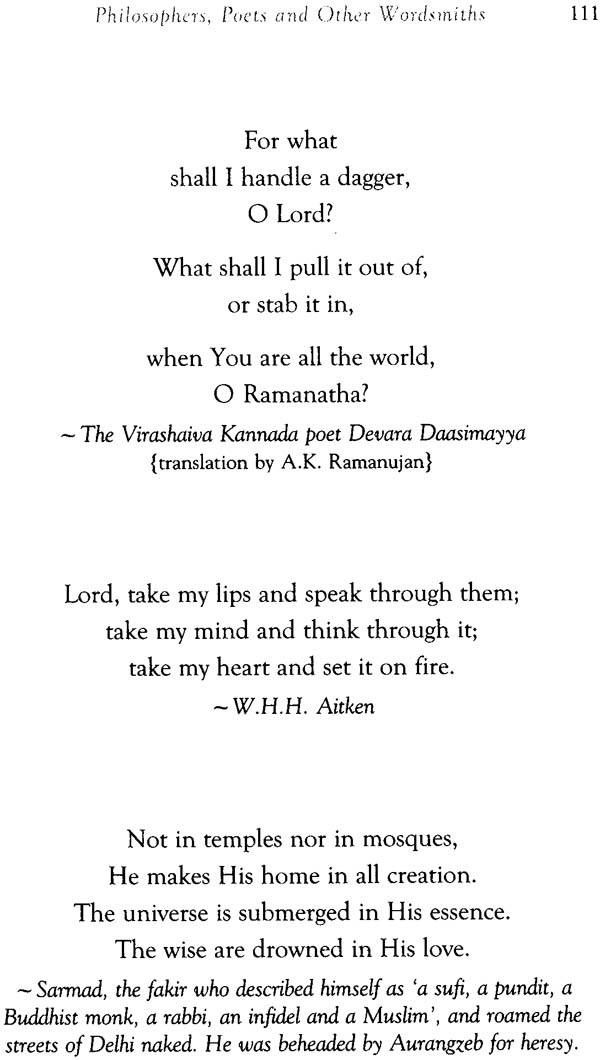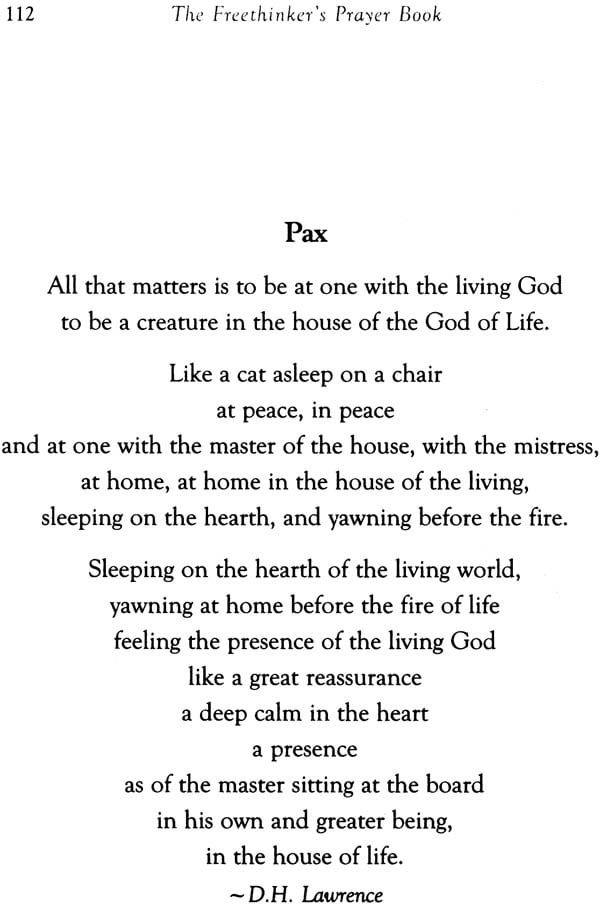
The Freethinker’s Prayer Book (And Some Words to Live by Khushwant Singh)
Book Specification
| Item Code: | NAH598 |
| Author: | Khushwant Singh |
| Publisher: | Rupa Publication Pvt. Ltd. |
| Language: | English |
| Edition: | 2012 |
| ISBN: | 9788192328041 |
| Pages: | 208 |
| Cover: | Hardcover |
| Other Details | 9.0 inch x 5.5 inch |
| Weight | 350 gm |
Book Description
Once you have decided not to bow to any gods, and if you have a good bullshit detector, it is possible to separate the sublime from the ridiculous and derive inspiration from the words of prophets and poets, gurus and rogues, grave men and clowns. There is a lot be learned from both the sacred and the profane. I have done that nearly all my life and put down in my notebooks hundred of lines from different sources that appealed to me… I offer them to you as life codes from an ancient and unrepentant agnostic. Read them with an open mind and an open heart.
Khushwant Singh does not believe in God. Yet he wakes up before dawn to listen to Sikh hymns, recites the Gayatri Mantra, and knows large parts of the Bible and the Quran by heart. He likes being known as a dirty old man who delights in malice, but is in fact fanatically disciplined and generous to a fault. He has lived an extraordinary life—marked by contradiction, mischief, compassion, courage and wisdom (though he denies all these charges). Where does this unusual agnostic turn for inspiration and strength? The freethinker’s Prayer Book gives us some answers.
In this eclectic deeply personal collection, India’s grand old man of letters bring together prayers and precepts by prophets, poets and philosophers, and his favourite passages from the seminal texts of the world’s major faiths. The Bible and the Guru Granth Sahib speak to us from these pages, as do the Quran and the Kabir, Rumi and Teresa of Avila mix with the verse of poets like Ghalib, Tagore and Keats. In the final section, Khushwant Singh shares some of his own life codes and those of the rebels and mavericks he most admires.
Full of spirit, wit and good sense—and as free of humbug as the man himself—this is a book of inspiration, comfort and entertainment for every discerning reader.
By the time this book is published, I will be ninety-seven. I am a very old man. And there is one eternal truth I can tell you right away: Old age is not pleasant; it buggers up your life. I am not yet senile, but my memory, of which I was very proud, is failing. Though I can still read, my hands shake so much that it is difficult to write anything legible. I have been spared the indignity of shitting in bed pans and having nurses wipe my bottom, but I often need assistance to get to the toilet. I am on more pills than I can count. In short, my body is giving up. It is time to say alvida and depart. I am reminded of these lines by John Keats:
Now more than ever seems it rich to die,
To cease upon the midnight with no pain ...
In the Mahabharata it is written, 'Man grows old, but not desire.' That great show-off, Oscar Wilde, said it more dramatically: 'The tragedy of old age is not that one is old, but that one is young.' They are both right. This is another reason why advanced age is a nuisance. The heart desires all the things you did in your youth, but time slowly robs you of the means to get them.
But I should not complain. I have lived a reasonably contented life, and it will be easy to go. Sometimes, however, I wish I knew where to. I am not a man of faith. Since I do not believe in paradise or the possibility of rebirth, I have no idea where I will be after I die. It is like staring into an endless dark void. Paul Valery put it very well: 'Death speaks to us in a very deep voice but has nothing to say.' For many years I dreaded death. To cure myself of the phobia, I would go to the cremation ground at Delhi's Nigambodh Ghat and watch corpses burn to ashes and bone. It was cathartic. It cleansed me of petty vanities and anxieties and I returned home at peace with myself. But it did not help me overcome my fear. Now, I am no longer afraid of dying-in fact, the end will be welcome, as long as it is swift and painless. I have made my peace with the great void. But I still don't know where I will be after I breathe my last.
People who have religion seem to derive comfort from the belief that they will meet their Maker after they die, or that they will be reborn in some form. The more self-righteous among them are convinced that they will ascend straight to heaven. As an agnostic, I have no such comfort. So be it. I have no regrets.
| Introduction | vii | |
| 1 | A Note on the Book | xvii |
| 2 | THE BOOKS and OTHER HOLY TEXTS | 1 |
| 3 | PROPHETS, MYSTICS and SAINTS | 39 |
| 4 | PHILOSOPHERS, POETS and OTHER WORDSMITHS | 107 |
| 5 | ONE LAST MISCELLANY | 171 |
| Acknowledgements | 188 |
